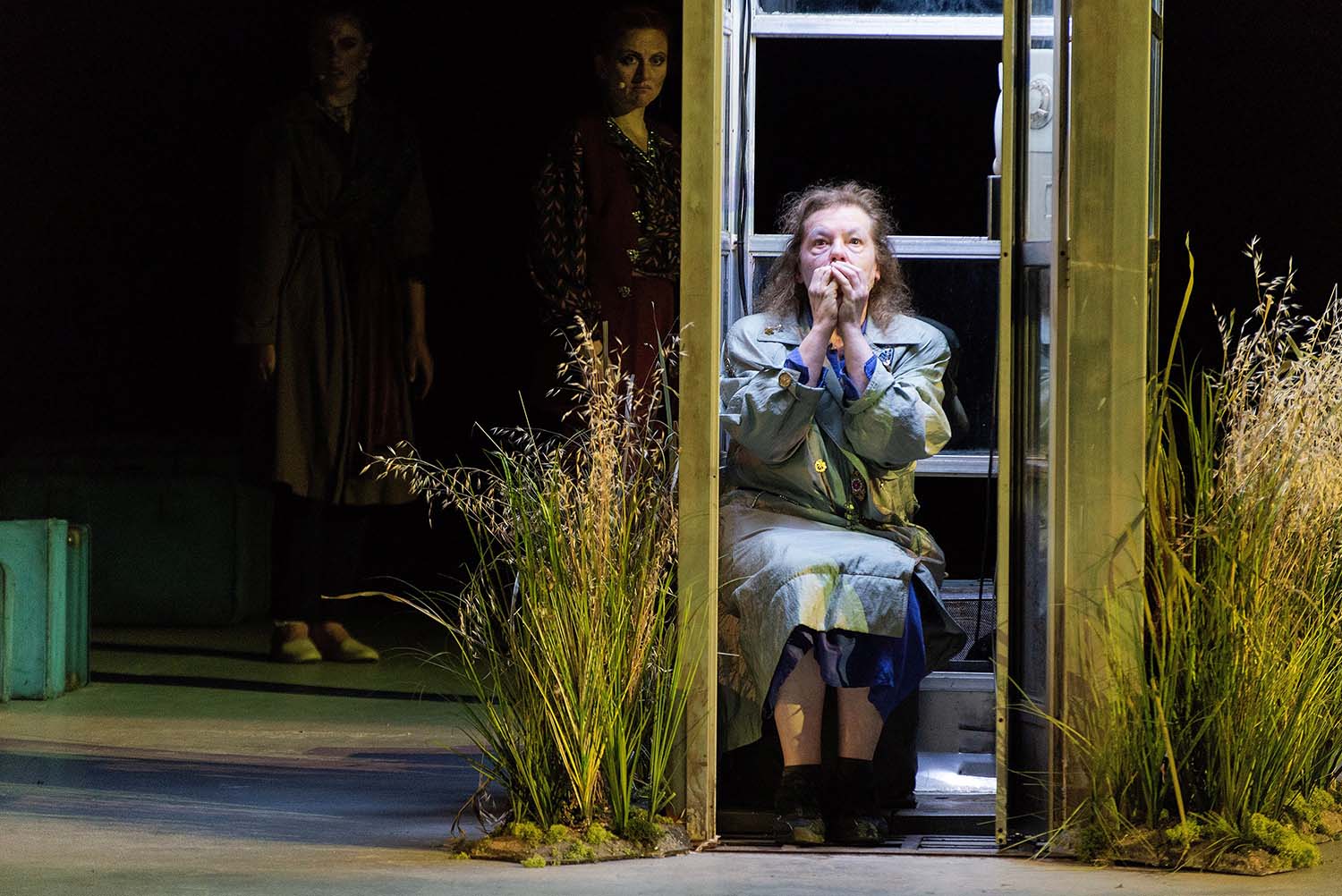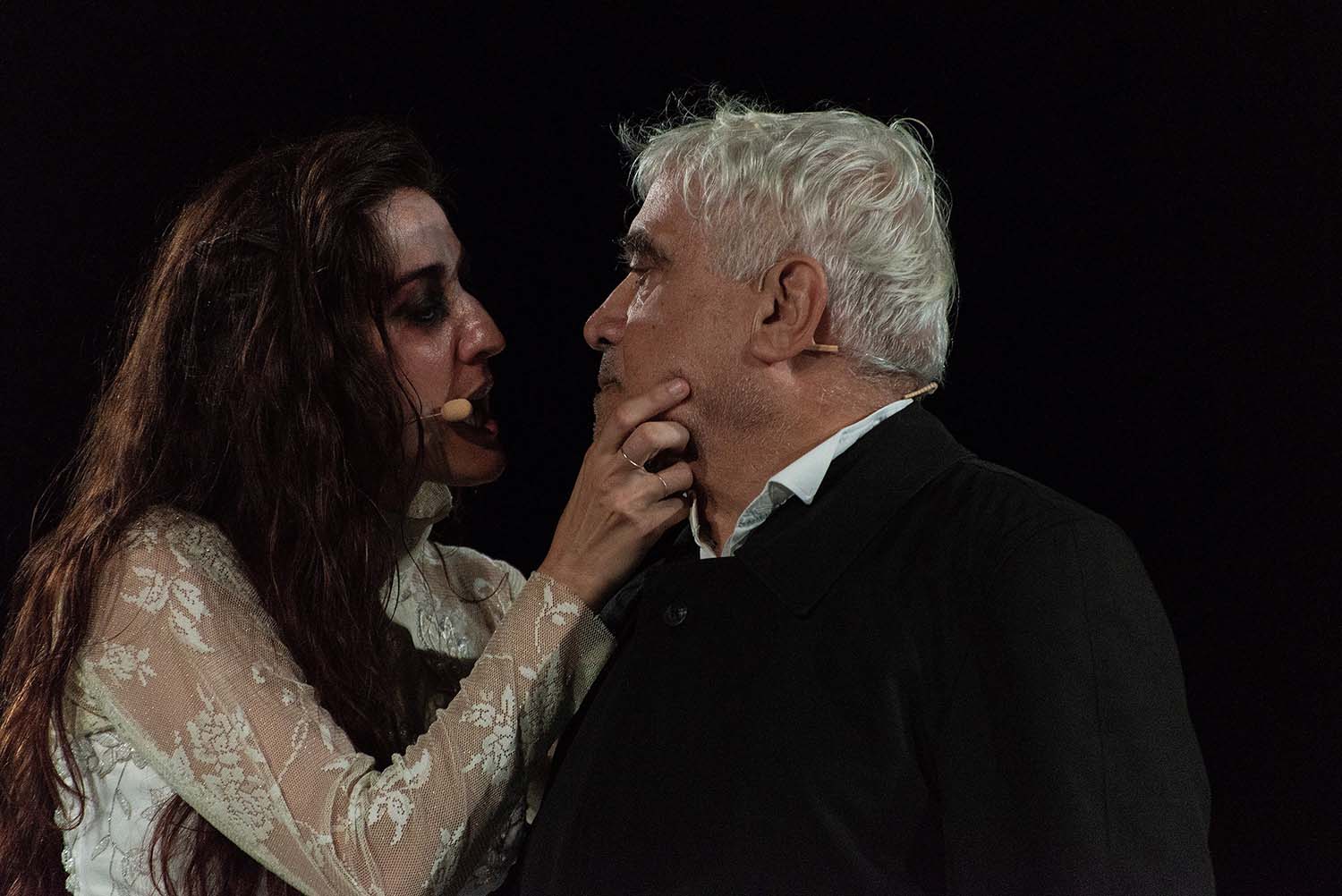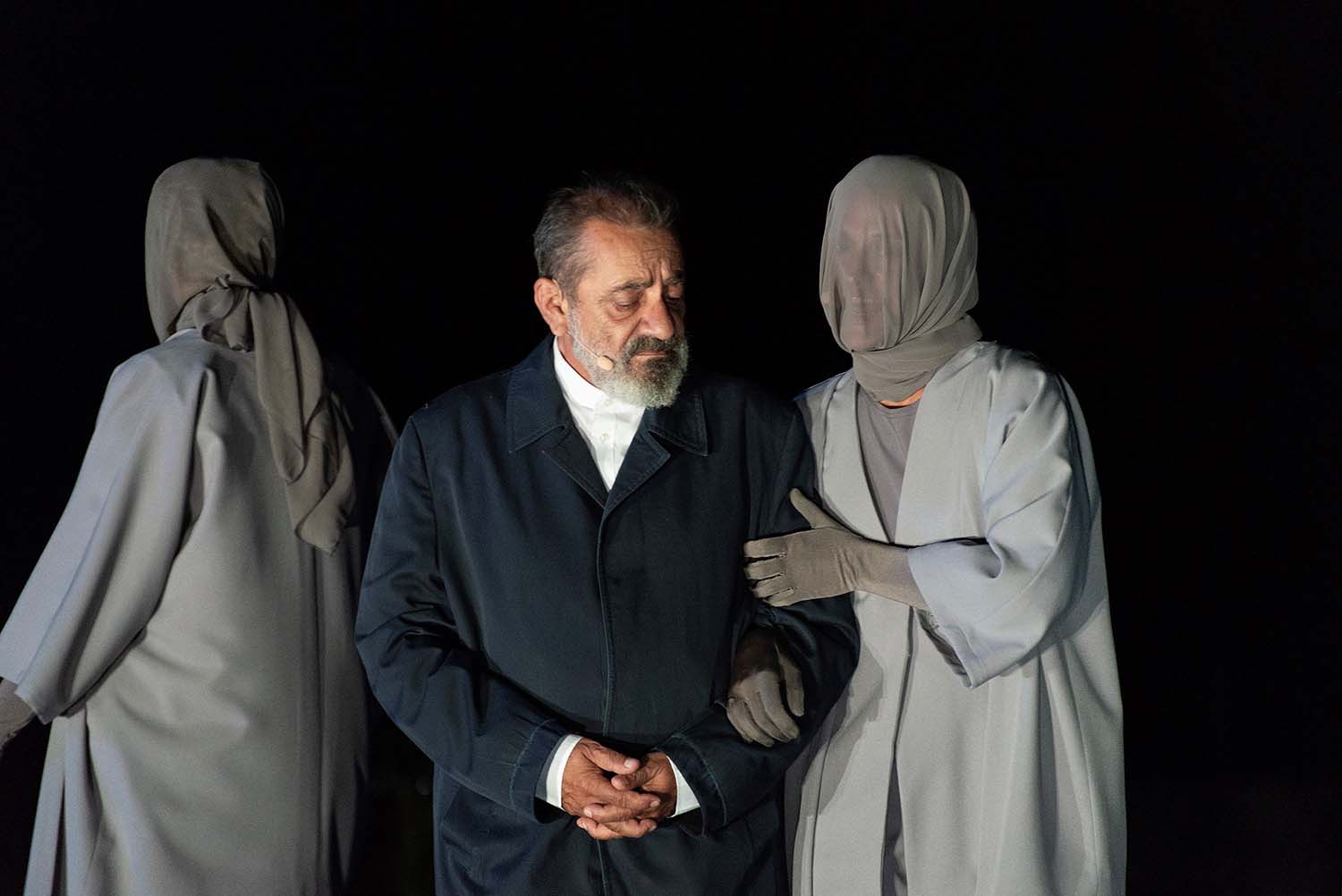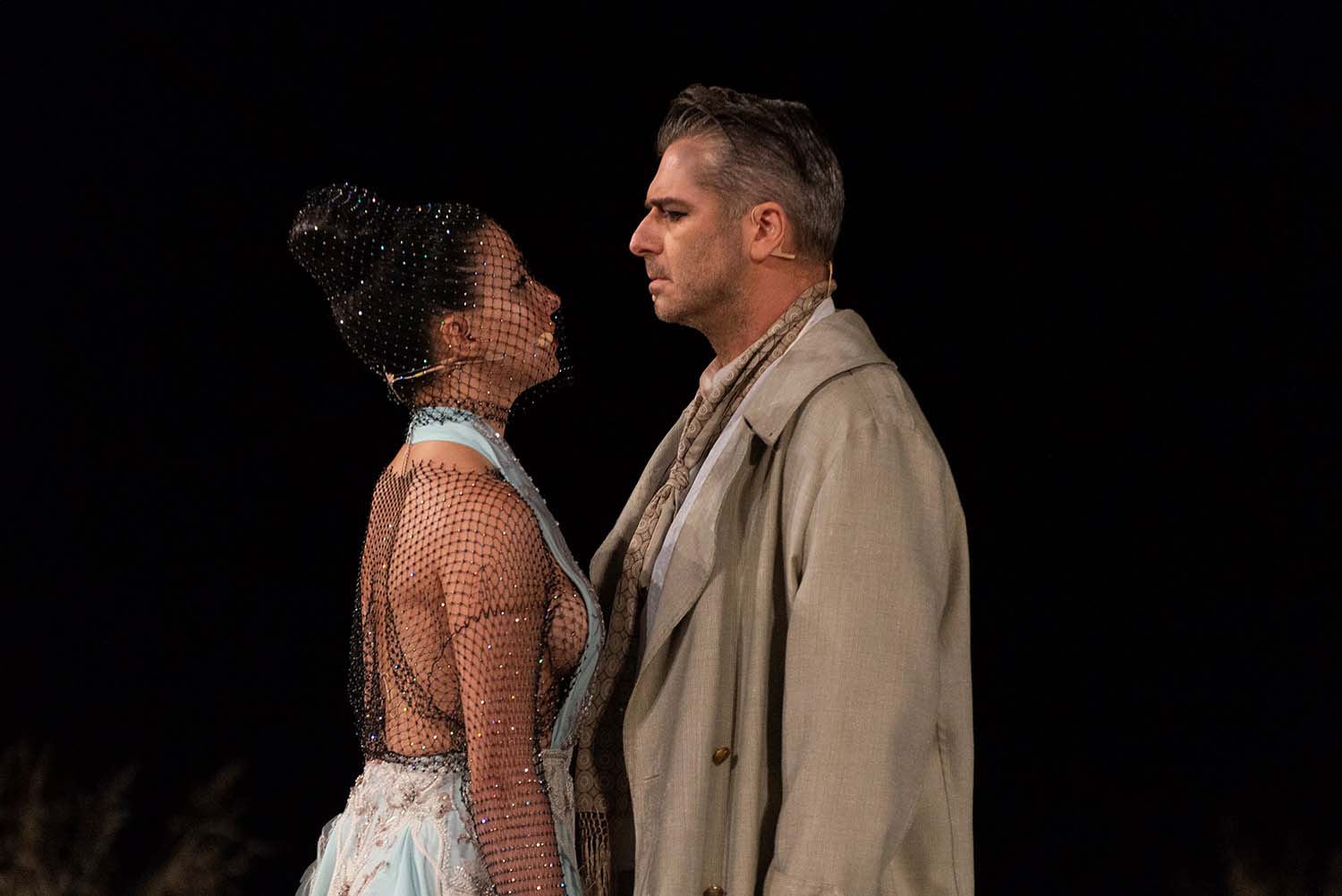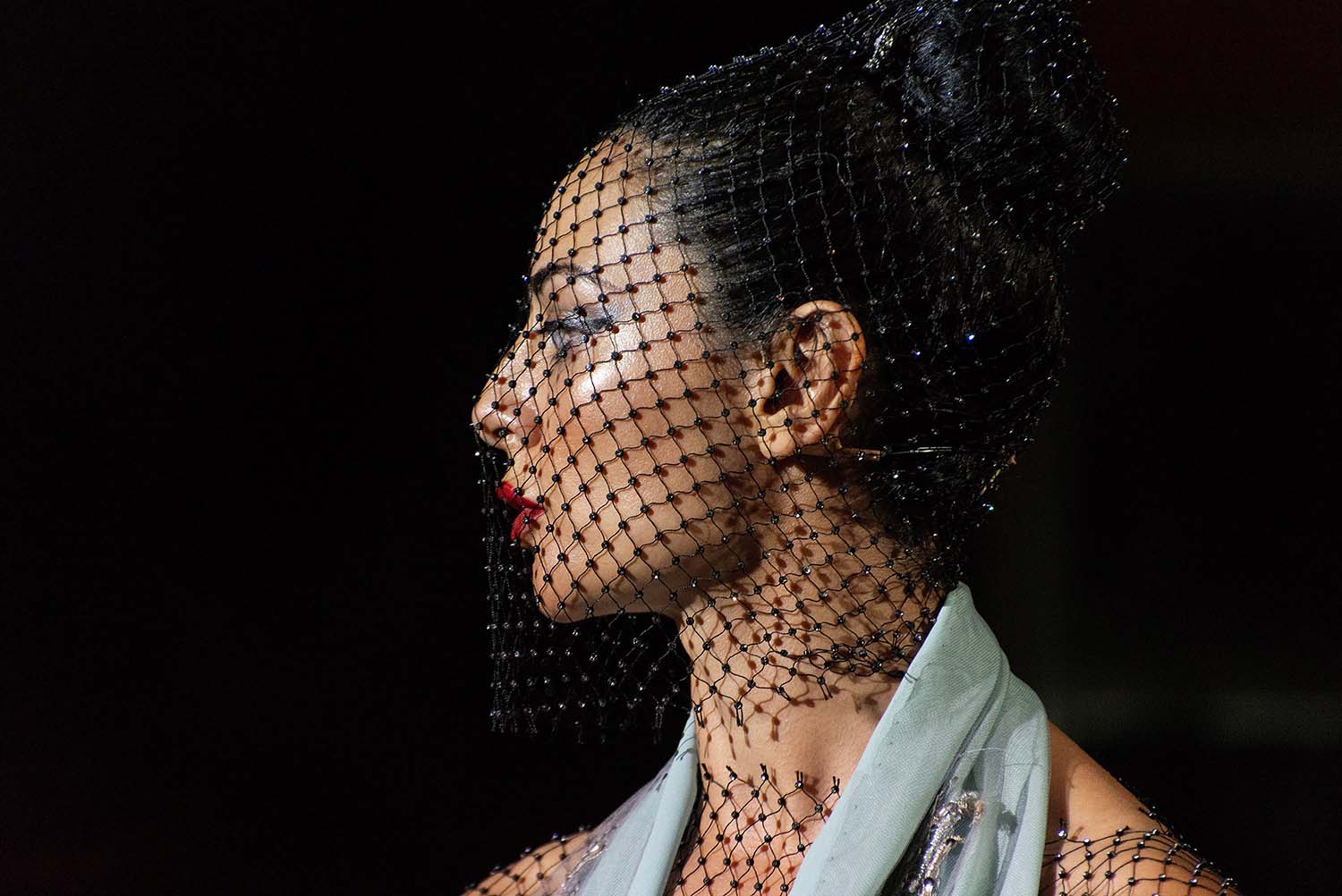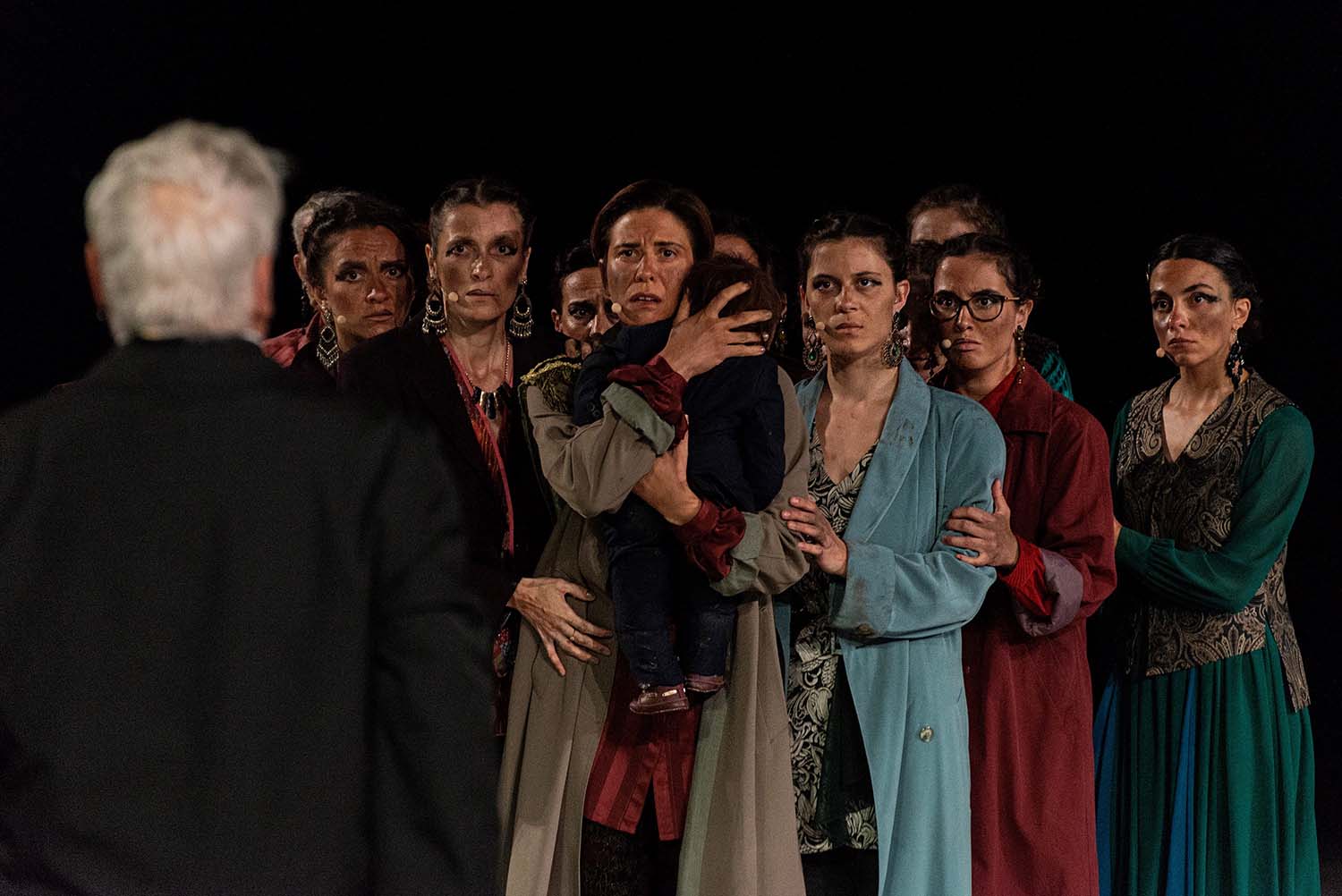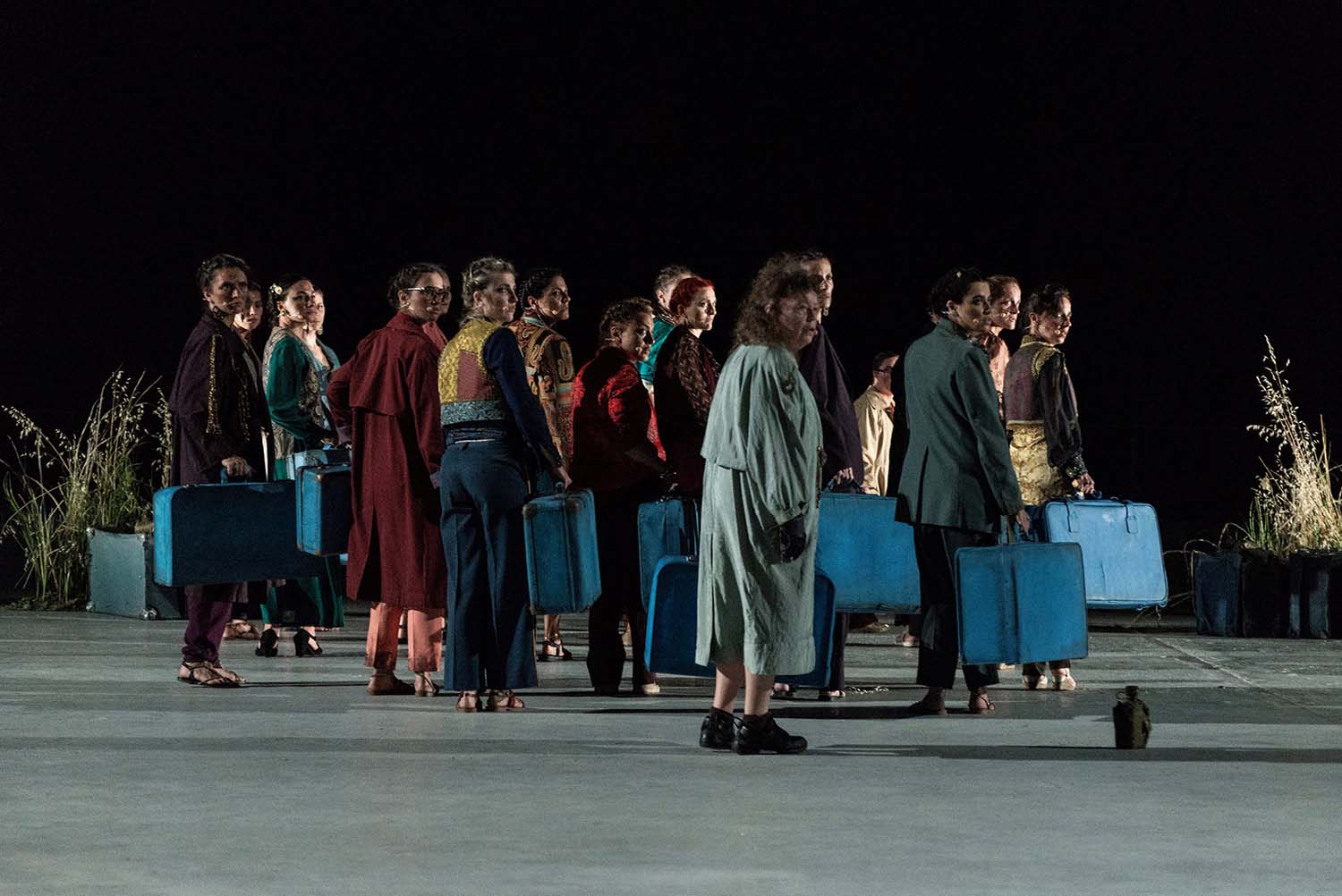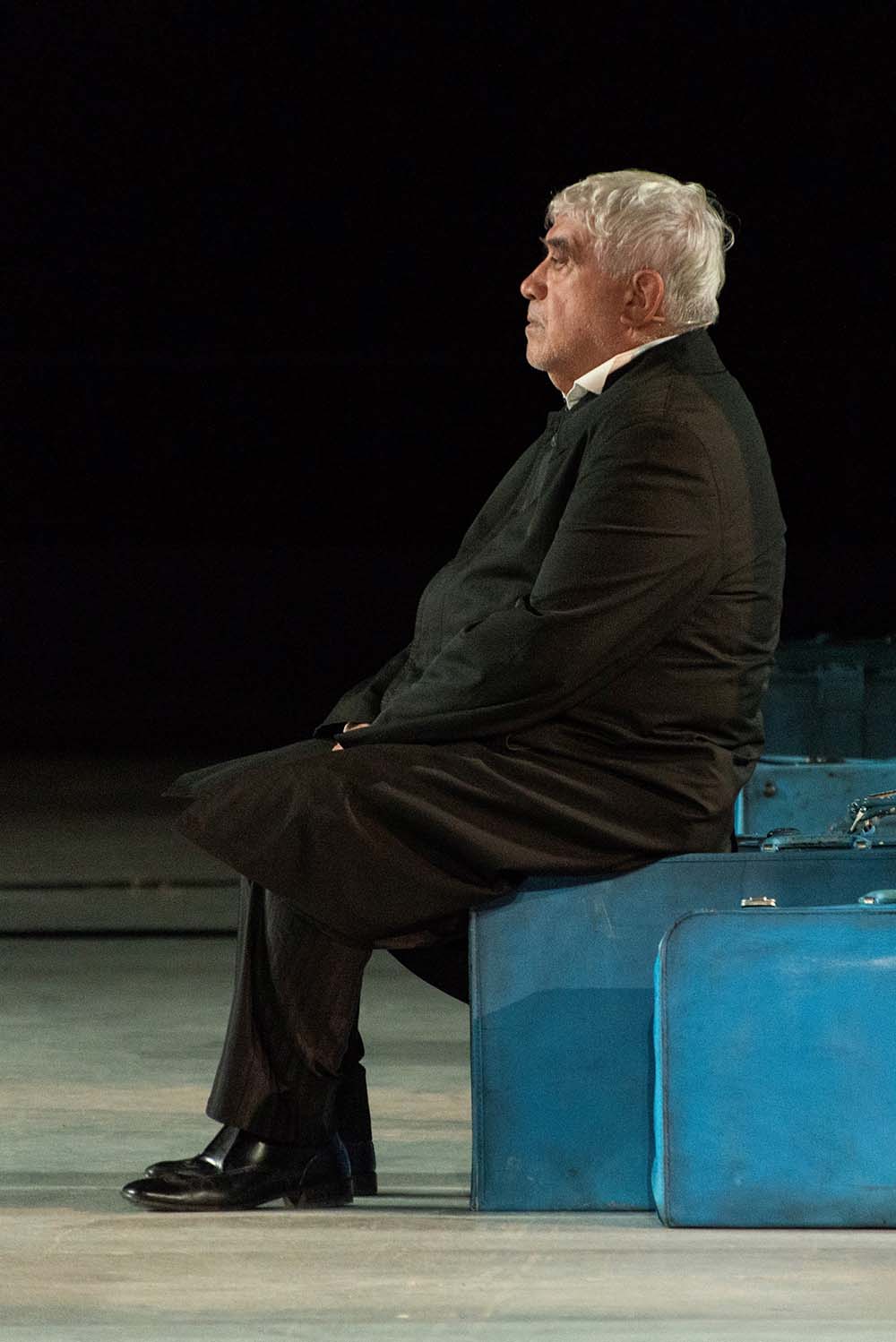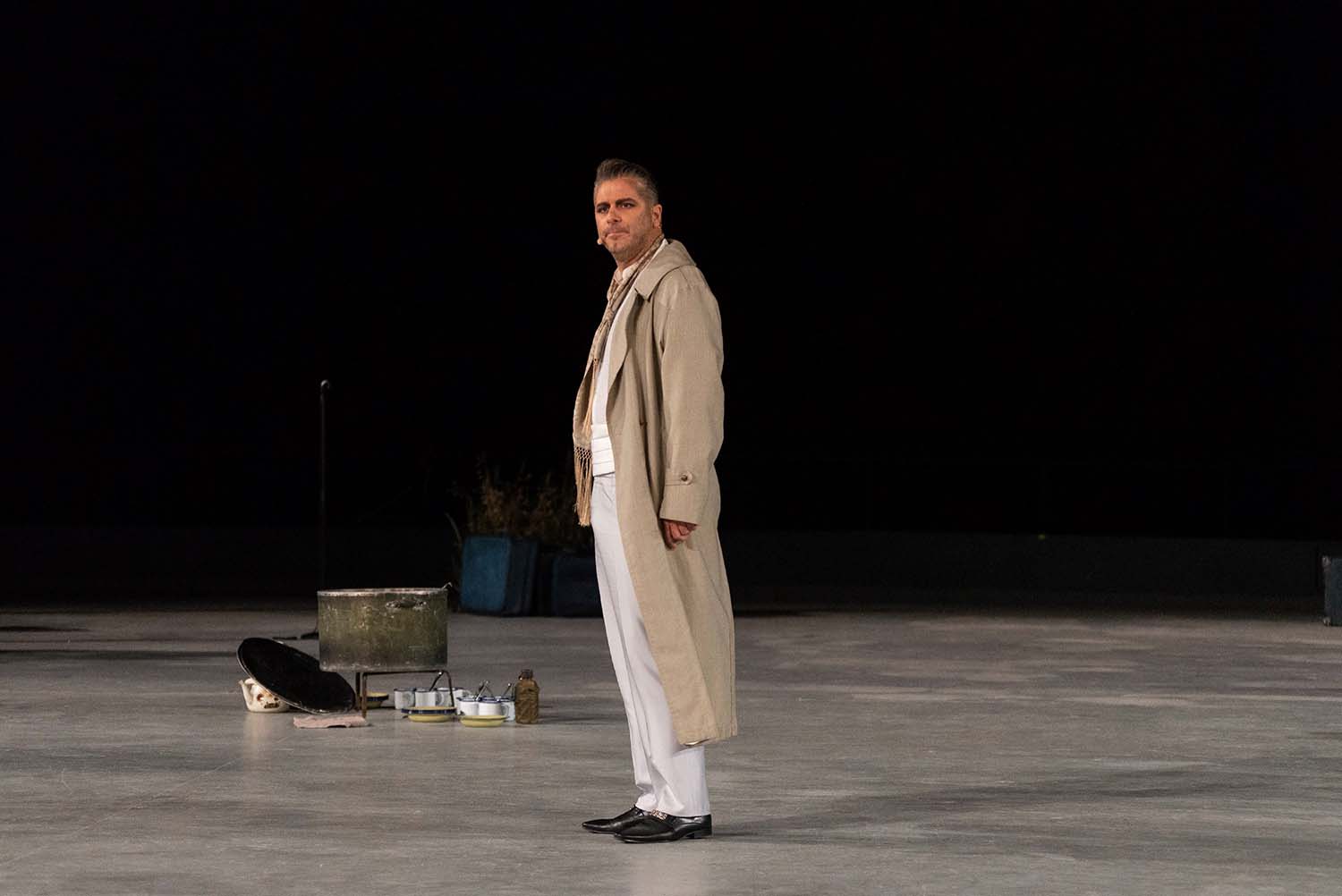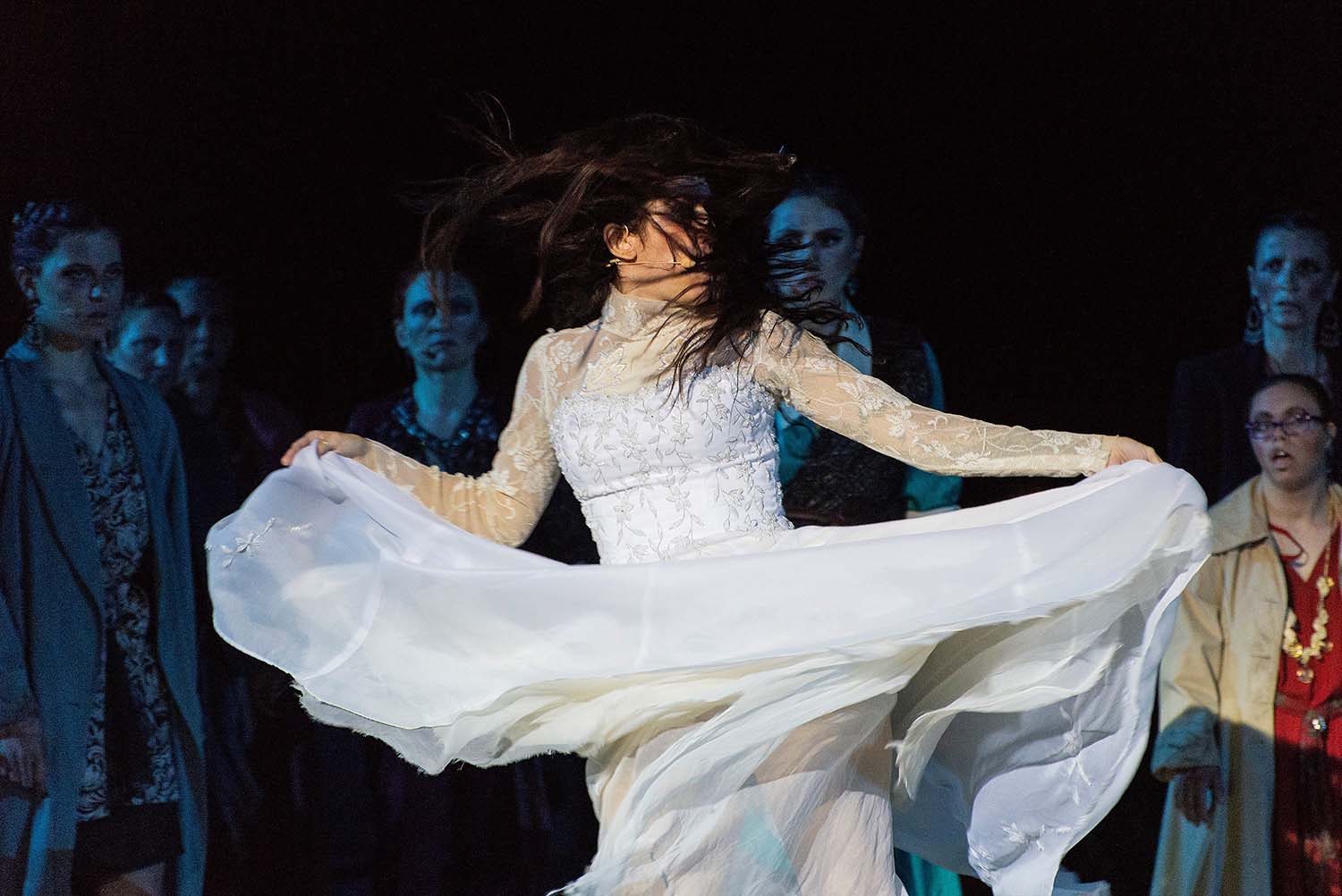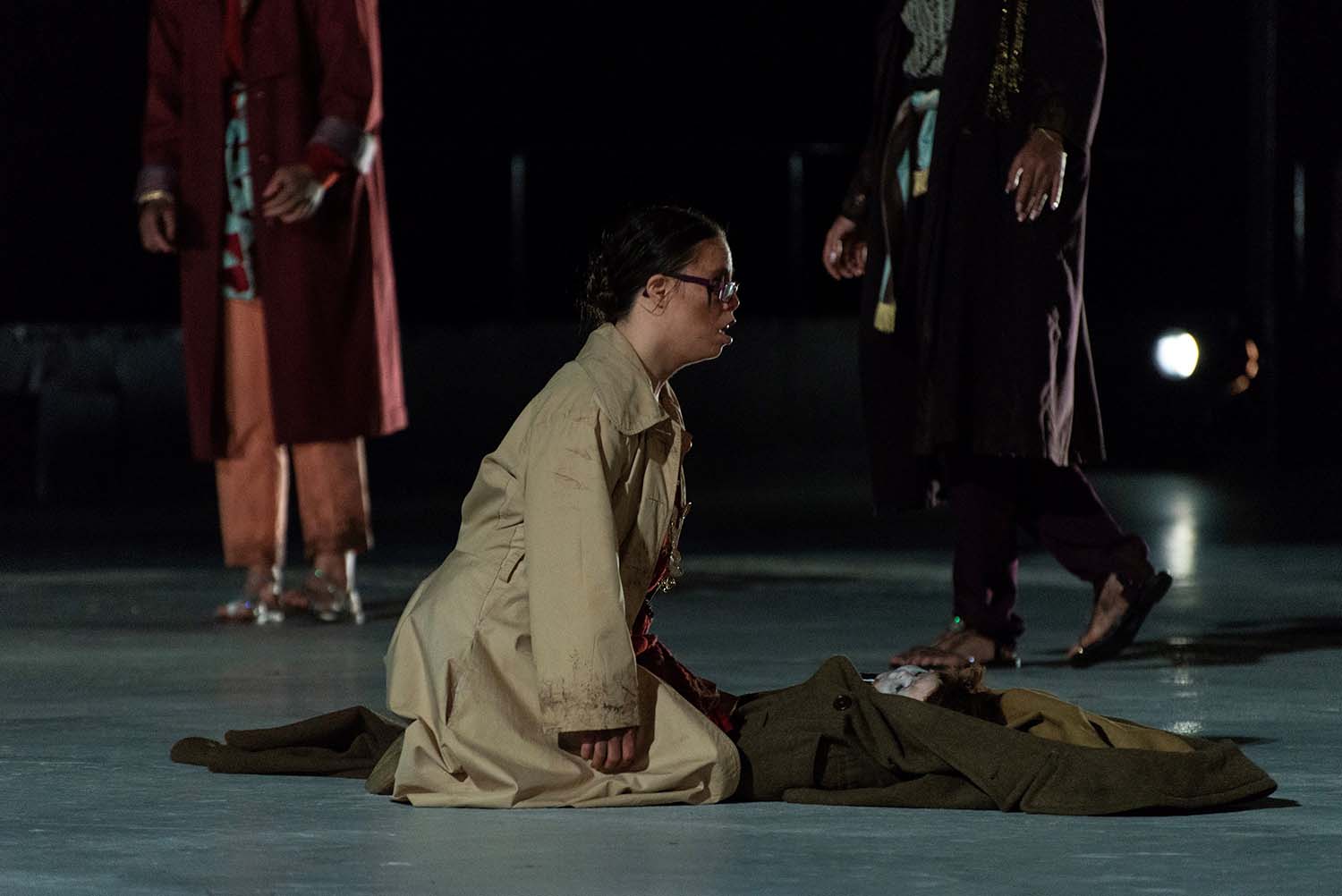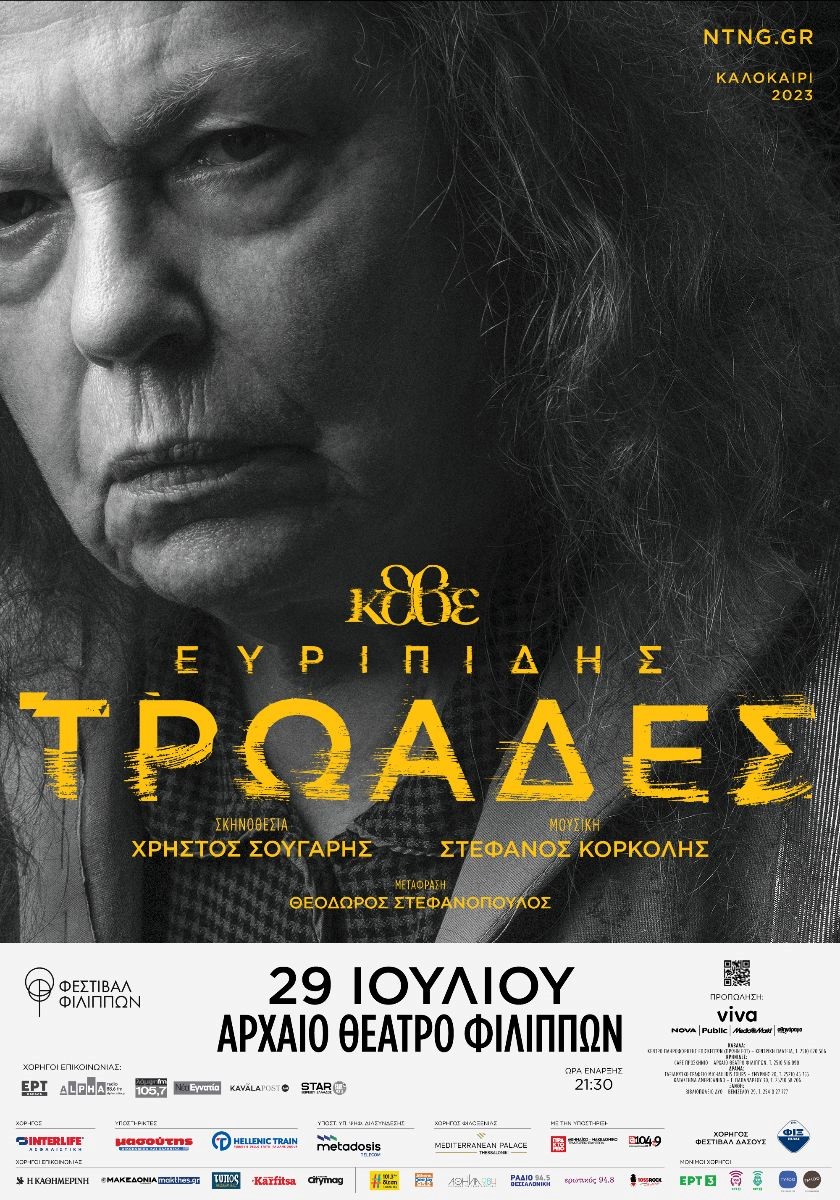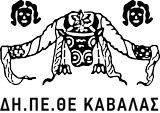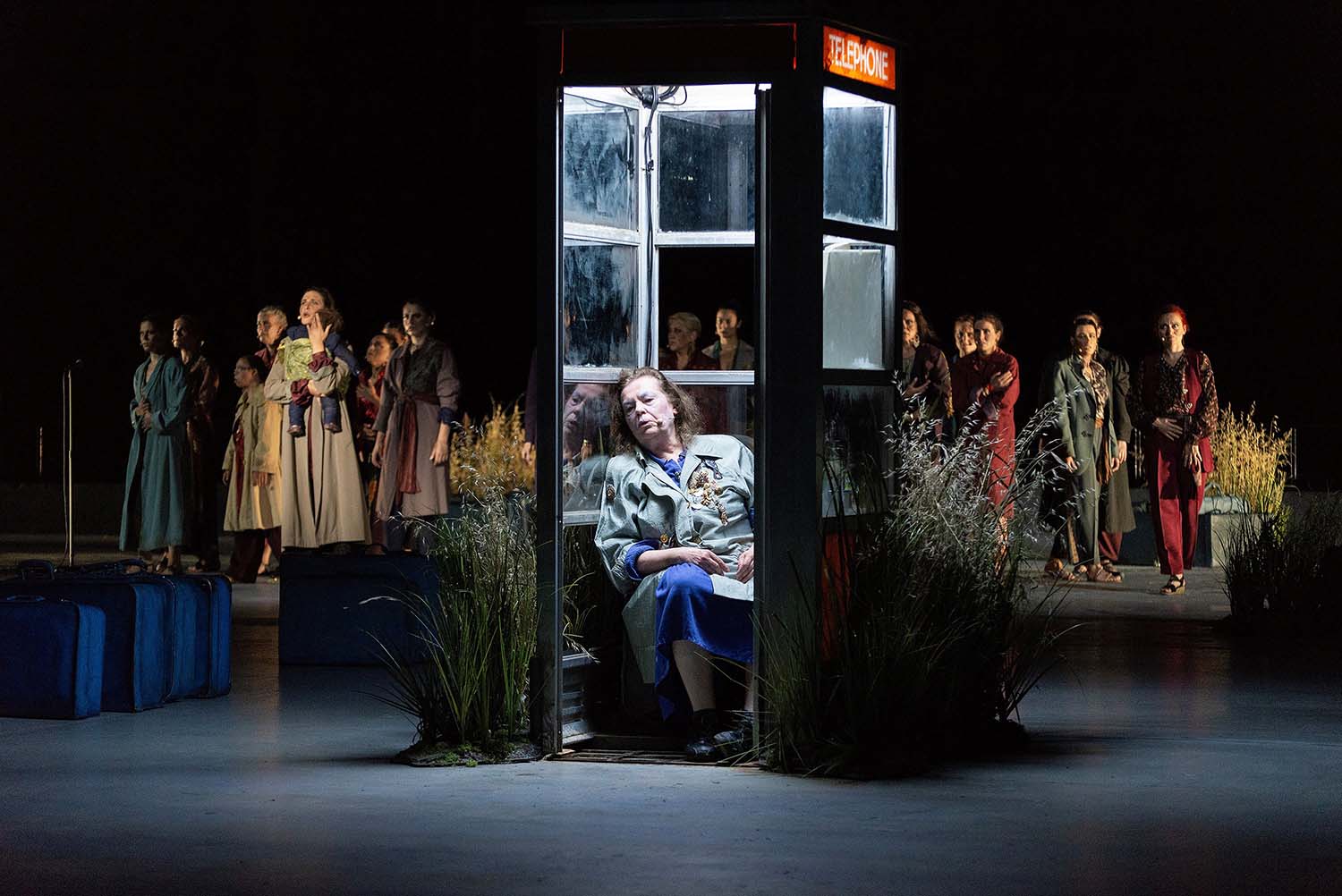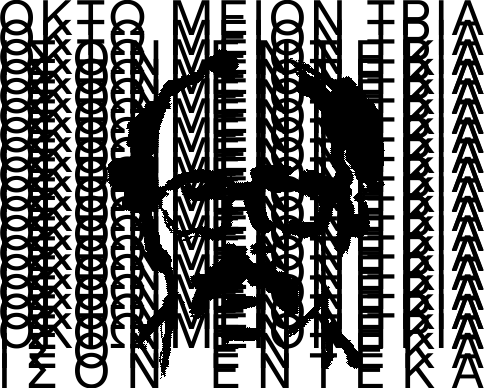National Theatre of Northern Greece
“The Trojan Women by Euripides
Directed by Christos Sougaris
Ancient Theatre of Philippi
Saturday 29 July, at 21.30
Euripides’ tragedy “The Trojan Women”, translated by Thodoros Stephanopoulos and directed by Christos Sοugaris, continues its summer tour throughout Greece with great success, attracting the interest of theatre lovers after the opening performances in Thessaloniki, which were attended by 6,500 spectators.
On Saturday 29th July at 21.30 it will be presented at the Ancient Theatre of Philippi in Kavala, as part of the 66th Philippi Festival.
The audience will experience a play that is highly topical and prophetic, as Euripides “speaks” about what is still happening today on a global scale.
Director Christos Sougaris, winner of the 2018 ‘Emerging Theatre Creator’ award from the Greek Theatre Critics Association and head of artistic programming at the National Theatre of Northern Greece, presents this year a radical reading of Euripides’ masterpiece.
The music of the performance is signed by the internationally acclaimed soloist and composer Stefanos Korkolis, who will play the piano on stage during the performances at the Ancient Theatre of Epidaurus on the 18th and 19th of August.
Roula Pateraki will play the role of Hecuba.
Starring: Dimitris Piatas, Alexandros Bourdoumis, Maria Diakopanagiotou, Mariza Tsari, Klio Danai Othonaiou, Loukia Vasileiou with an exceptional company of 20 actors.
Antonis Kafetzopoulos in the role of Poseidon.
A few words about the play
Awaiting their departure for Greece, the captive women of Troy mourn the fall of the city. They are joined by Hecuba, who awaits the announcement of her own fate, but is met with a series of misfortunes: Polyxene is killed in Achilles’ tomb, and Andromache learns of the Achaeans’ decision to kill her young son Astyanax. At the same time, Cassandra foretells the disasters that will befall the Greeks on their return.
The Trojan Womenthe only surviving tragedy of Euripides’ trilogy on the Trojan War, was taught at the Great Dionysia in 415 BC. The play was written shortly after the destruction of Milos in 416 BC, when the Athenians, with inhuman brutality, killed all the adult men of Milos and sold the women and children as slaves.
Euripides seeks to warn of the consequences of the ruthlessness of the victors and to remind us of the importance of remaining human, away from the illusion of omnipotence created by fleeting victories. In The Trojan Women, the poet emphasises the human dimension of the enemy and, by focusing on the greatness of the women of Troy, he highlights the strength that allows people to persevere even after destruction.
Director’s note
My relationship with this Euripidean tragedy began when I was a student at the Drama School of the National Theatre of Northern Greece.
The Trojan Women was our final year project, directed by our teacher, Giannis Rigas, and was – along with Ajax by Vasilis Papavasileiou, Elektra by Antoine Vitez and The Bacchaeby Matthias Langhoff – the starting point of an intense and lasting study and love of this theatrical genre and the ways of interpreting it on stage.
I also belong to the category of spectators who enjoy visiting open-air – or not – theatres and watching attempts at staged readings of the masterpieces of the three great poets.
And I enjoy even more the diversity – when it exists – in the narrative aesthetics of the artists. This is because many of us make the mistake of assuming that there is only one version of Antigone, Oedipus, Heracles, and therefore only one narrative aesthetic. We usually accept the one that has become dominant.
What is truly impressive in all respects is the fact that our tragedians, our peers, as well as the listeners and spectators of this genre in its heyday, liked to converse on the basis of well-known and widespread myths, but above all on the basis of their interpretation. The strictly personal – and therefore unique – interpretation of these myths.
Sophocles’ Electra is not the same as Euripides’ Electra. And how could it be? And what would be the point in such a case?
What always worried me when I was watching plays of this genre was the entrenchment of an aesthetic mode of storytelling and the obsession of professionals and some audiences with what this genre is, but more importantly, how it is interpreted.
What virtually prevailed, and whose remnants still plague us today, was the verbalistic version of narration, with possibly interesting stage performances by directors and great protagonists of the country’s glorious theatrical past, which we poor “descendants” had to protect, preserve and disseminate as a cultural heritage. Unfortunately, even today we still have to deal with questions such as “how is a tragedy performed”, “is it appropriate to trample on the thyme of the Argolic theatre”, “is it disrespectful – to whom, I wonder? – to use microphones in the presentation of the genre’, but also ‘whether it is permissible to interpret the genre in any other way than the almost archetypal ritualistic style that has been revealed to us in various ways and interpretations by the obviously useful and important study of archaeologists, philologists and specialists in our genre’.
What we often overlook, however, is the fact that the citizens of Athens came to the Dionysus Theatre not to hear and see, for example, last year’s hugely successful Antigone, but this year’s interpretation of that particular myth by another poet.
And while our peers, writers, hypocrites and audiences alike, were not at all concerned with issues of “authenticity” and “scholarly competence”, but, free of such ideological baggage, were interested in interpretations, only we seem more conservative than they, insisting on narratives such as “this is not tragedy” every time we are presented with an interpretation different from the one that has been glorified and imposed on us in the past.
I had and still have the feeling, which sometimes amounts to a belief, that you can respect the genre but try to have a meaningful conversation with your contemporary viewers through it, in a context of sincere effort, which for me begins with personal private listening before it becomes public.
I dare say that the louder we are, the less we hear our own voice.
My limited experience of staging the genre – The Trojan Women is my fourth attempt – has shown that the demand for a low-voiced, humanistic, non-verbalistic stage interpretation of the tragedy is not so inappropriate.
The genre is not in danger from interpretations that seem ‘modernist’. Like any other genre, it is only endangered by indifferent, sloppy and ultimately bad interpretations.
So, on the occasion of this tragedy, and as a continuation of our stage study of the genre, I and my valuable collaborators will attempt once again, in our very personal style, to create a stage interpretation, an honest and unobtrusive narrative of this heartbreaking tragedy by a truly great innovator of the genre.
Christos Sougaris
Composer’s note
It was with great pleasure that I accepted the offer of the National Theatre of Northern Greece to compose the music for this masterpiece by Euripides, directed by Christos Sougaris. This is the second time I have composed music for a tragedy – the first was four years ago for The Bacchae by the same author.
I think The Trojan Women is perhaps the most outstanding and timeless play, because it tells something that is still experienced by so many people today. The music, which is restrained in intensity but not in emotion, follows the performance of the play and the actors. It takes on a cinematic character, moving in a minimalist and neo-romantic form, but without having an accompanying quality and without being subdued. It is another “role” of the play that creates the appropriate atmosphere and progresses according to the development of the tragedy. It is a basic musical motif that mutates (variations) according to the scenes in order to emphasise despair, pain and agony. In the choral parts, the music does not necessarily become a song, but an aid to the emotions. Together with the director Christos Sougaris, it was decided that a performance with only one piano would be more harmonious with the way the play is performed.
I am particularly pleased to have the opportunity to perform the music on stage at the premiere, at the Dassous Theatre and at the Ancient Theatre of Epidaurus.
Stefanos Korkolis
Translation: Theodoros Stefanopoulos, Dramaturgy – Direction: Christos Sougaris, Set – Costume Design: Eleni Manolopoulou, Original Music Composition: Στέφανος Κορκολής, Movement Direction: Ermis Malkotsis, Lighting Design: Alekos Anastasiou, Makeup Artist: Mando Kamara, Assistant Director: Christoforos Mariadis, Assistant Set – Costumer Designer: Danai Pana, Production Management: Marleen Verschuuren, Photography: Mike Rafail (That Long Black Cloud)
Cast (in alphabetical order): Melina Apostolidou (Athena), Loukia Vasileiou (Athena), Momo Vlachou (Athena), Hara Giota (Athena), Ilektra Goniadou (Athena Maria Diakopanagiotou (Cassandra)Antonis Kafetzopoulos (Poseidon), Christina Bakastathi (Athena), Alexandros Bourdoumis (Menelaus), Betty Nikolesi (Athena), Roula Pateraki (Hecuba), Klio Danai Othonaiou (Athena, Helen), Dimitris Pyatas (Talthybius), Polyxeni Spyropoulou (Athena), Virginia Tabaropoulou (Athena), Theofano Tzalavra (Athena), Mariza Tsari (Andromache), Mara Tsikara (Athena)
Women: Marianna Avramaki, Melina Apostolidou, Loukia Vasileiou, Momo Vlachou, Hara Giota, Ilektra Goniadou, Zoi Efthymiou, Ilektra Kartanou, Evi Koutalianou, Loxandra Lucas, Eleni Mischopoulou, Christina Bakastathi, Chrysi Bachtsevani, Betty Nikolesi, Klio Danai Othonaiou, Polyxeni Spyropoulou, Virginia Tabaropoulou, Theofano Tzalavra, Fotini Timotheou, Mara Tsikara
Man: Christoforos Mariadis
“The Trojan Women” by Euripides
Ancient Theatre of Philippi
Saturday 29 July, at 21.30
No admission to the theatre once the performance has begun.
Ticket prices: Presale: 15€, General Admission: 17€, Students, Over 65: 12€, Teachers/Groups (10 persons): 10€, Unemployed: 10€, Disabled & Personal Carers: 8€
Online Presale: https://www.viva.gr/tickets/theater/troades-1/
Presale:
Kavala: Visitor Information Centre of the Municipality of Kavala (former EOT) Central Square, phone: 2510-620566, daily from 10:00 to 14:00 and from 18:00 to 21:00, while on the days of the performances there will be pre-sale at the box office of the Ancient Theatre of Philippi from 19:30 in the afternoon.
Krinides: Café “Proskinio”, Ancient Theatre of Philippi, Tel: 2510516090
Drama: “Americanino 30” G. Papandreou Street, Tel: 2521058206
Travel agency “Michailidis Tours”, 20 Smyrnis Street, Tel 2521045755
Xanthi: Bookstore ‘DYO’, 29 Venizelou Street, Tel: 25410-27777
This year it will be possible to be transported to and from the Ancient Theatre of Philippi by bus of the Kavala Bus Company on presentation of a ticket for the performance and a fare of 3.20€.
The bus departs from Kavala bus station at 19.15 and returns at the end of the performance.
For further information and seat reservations, please call the Municipal and Regional Theatre of Kavala on +30 2510. 220876-7 during office hours.
